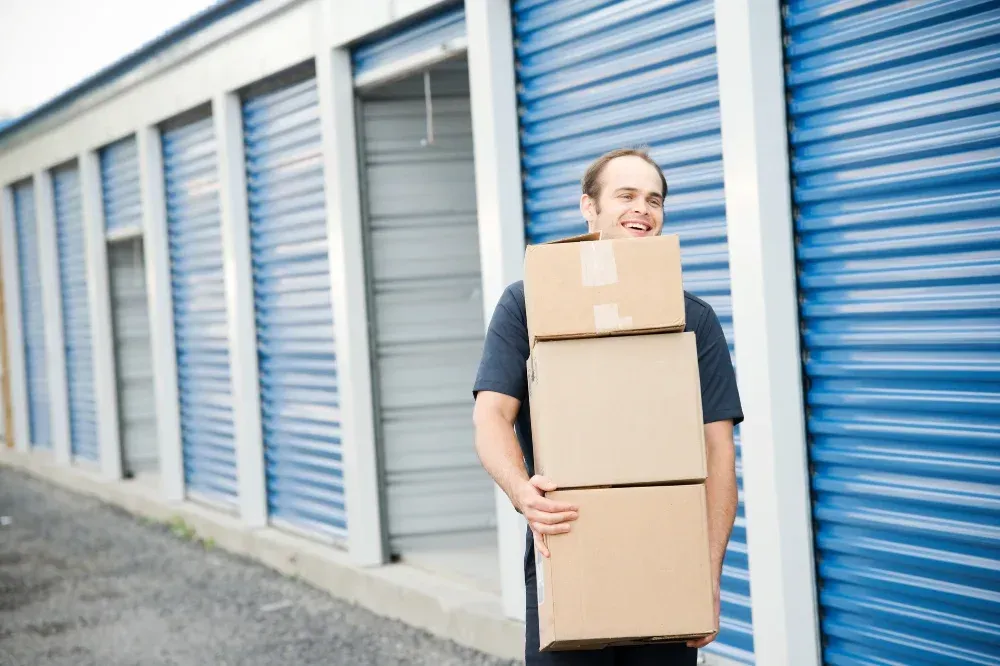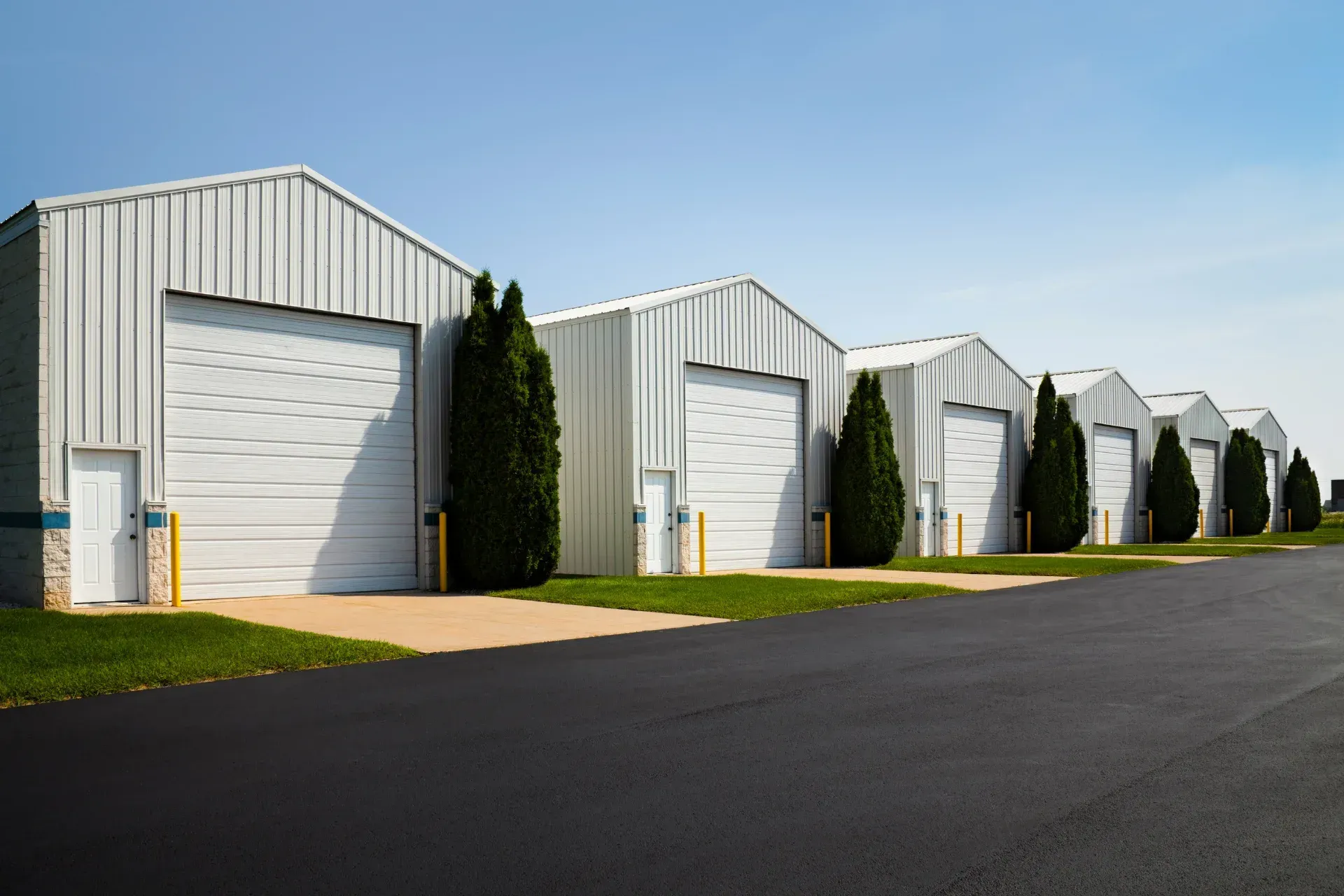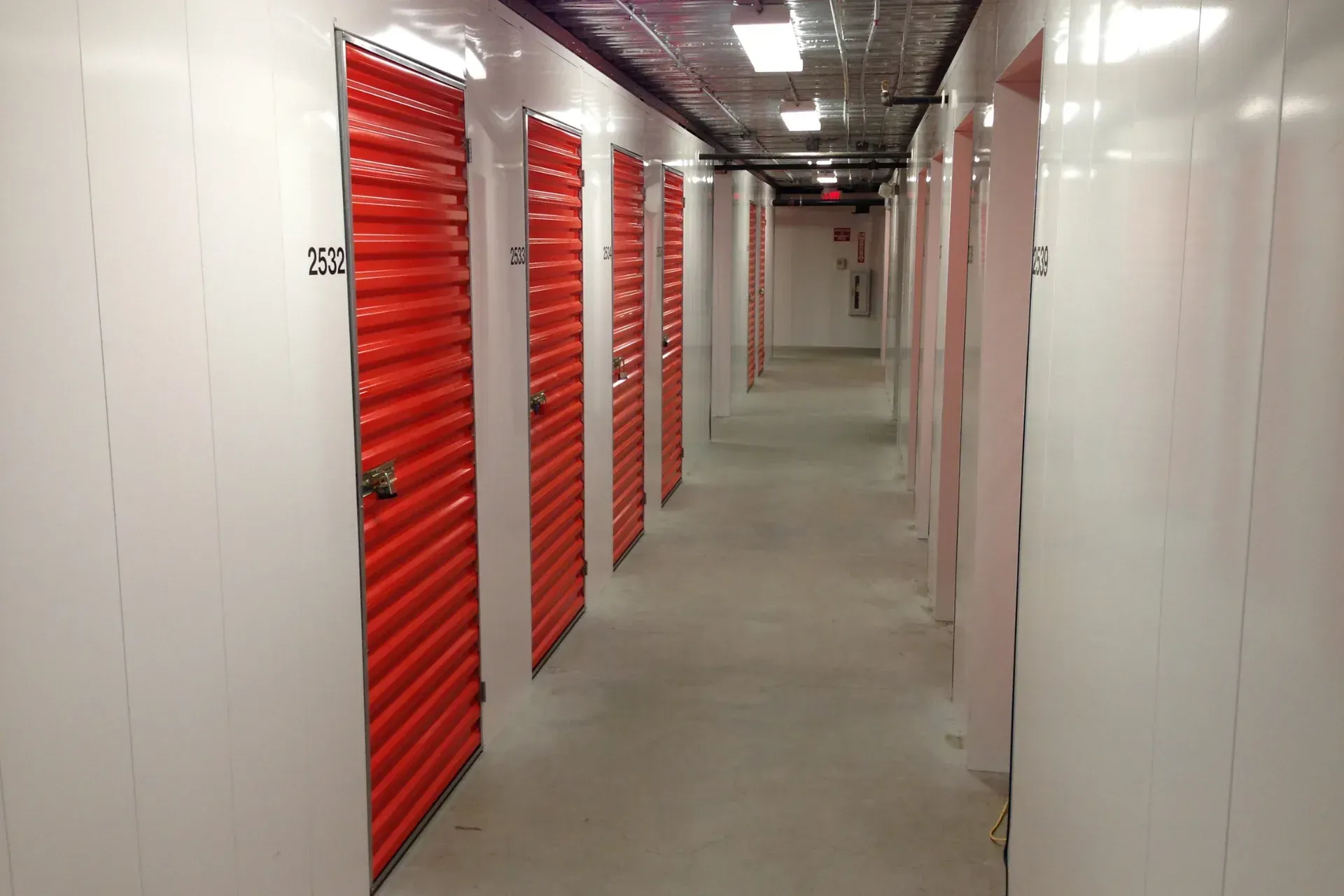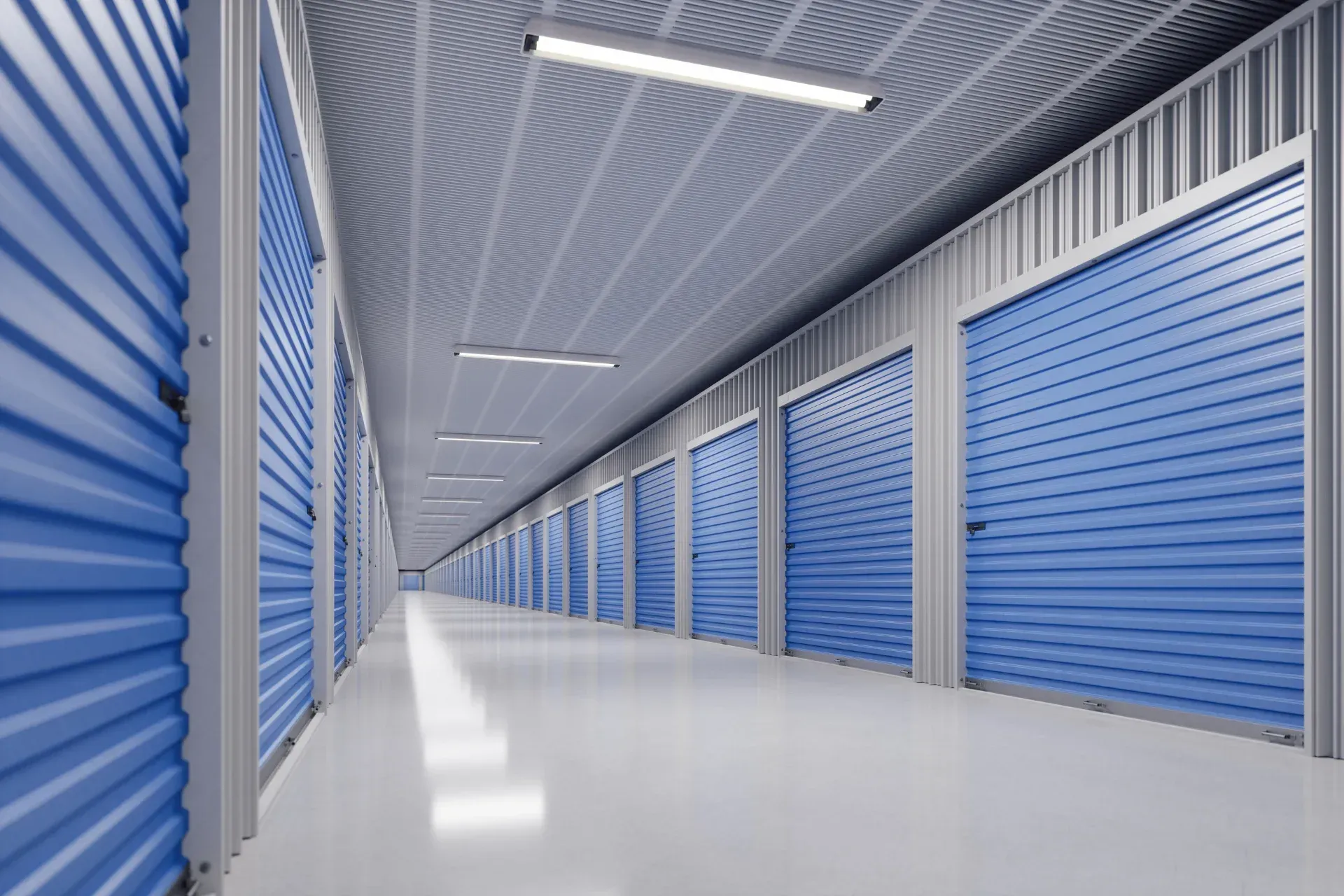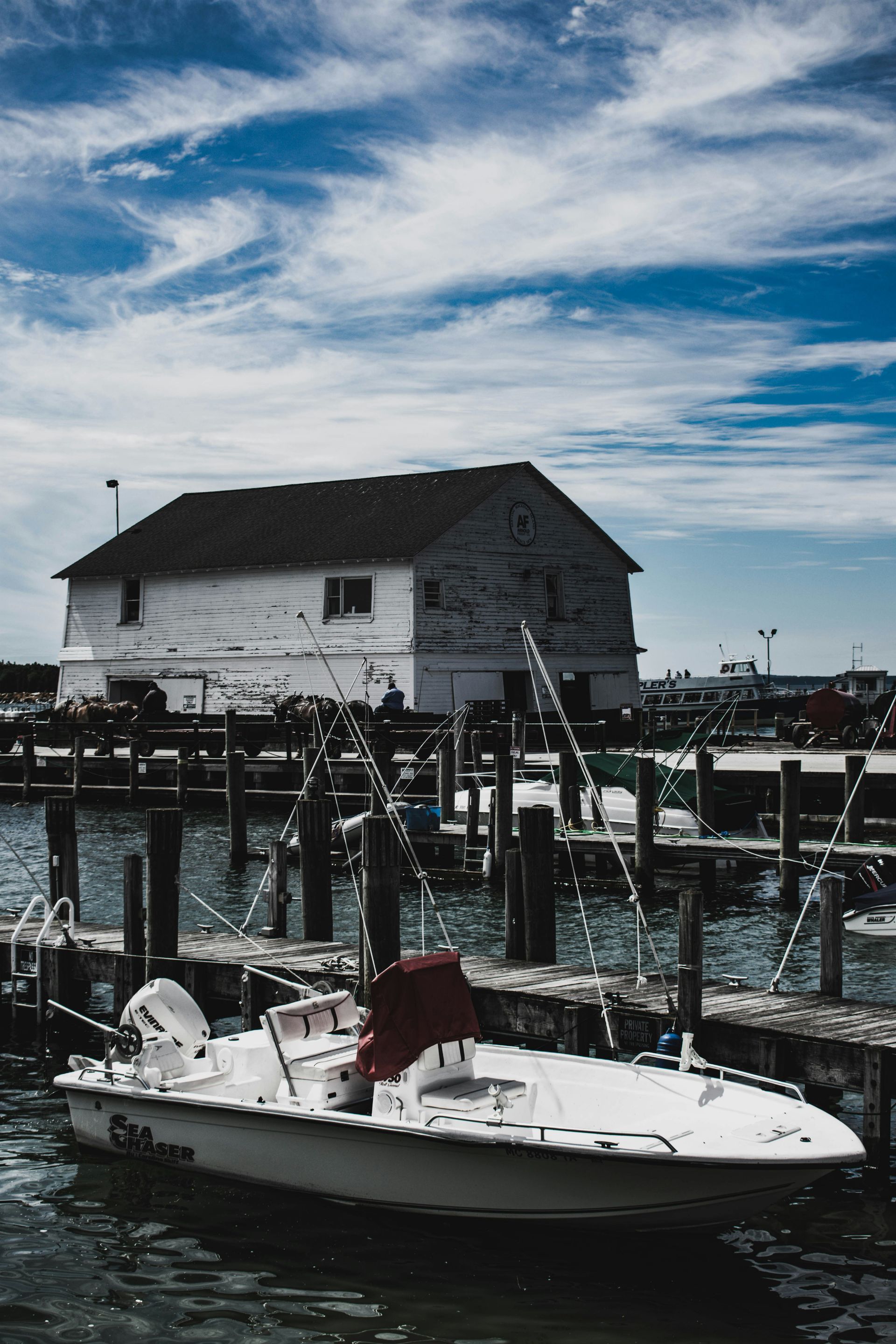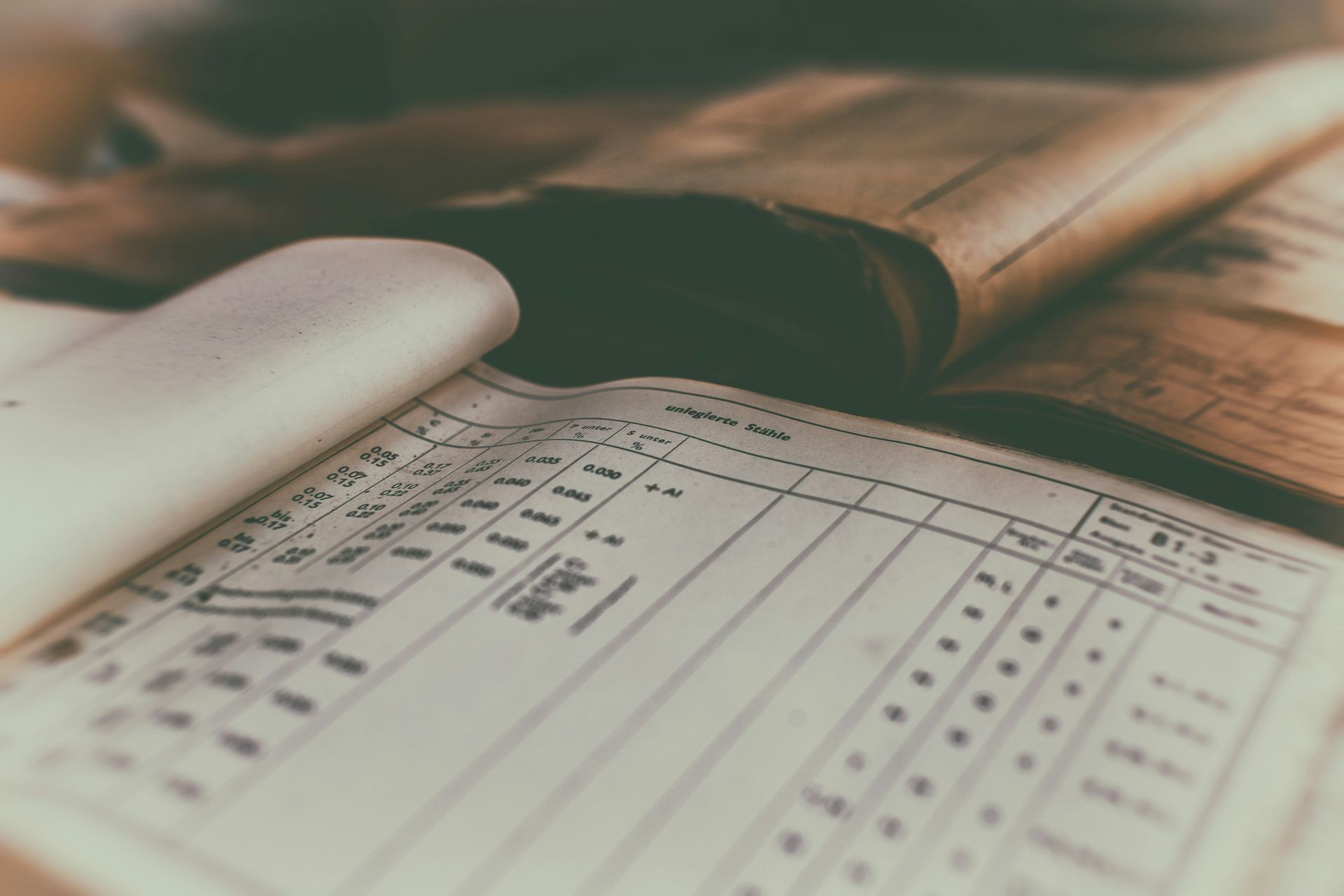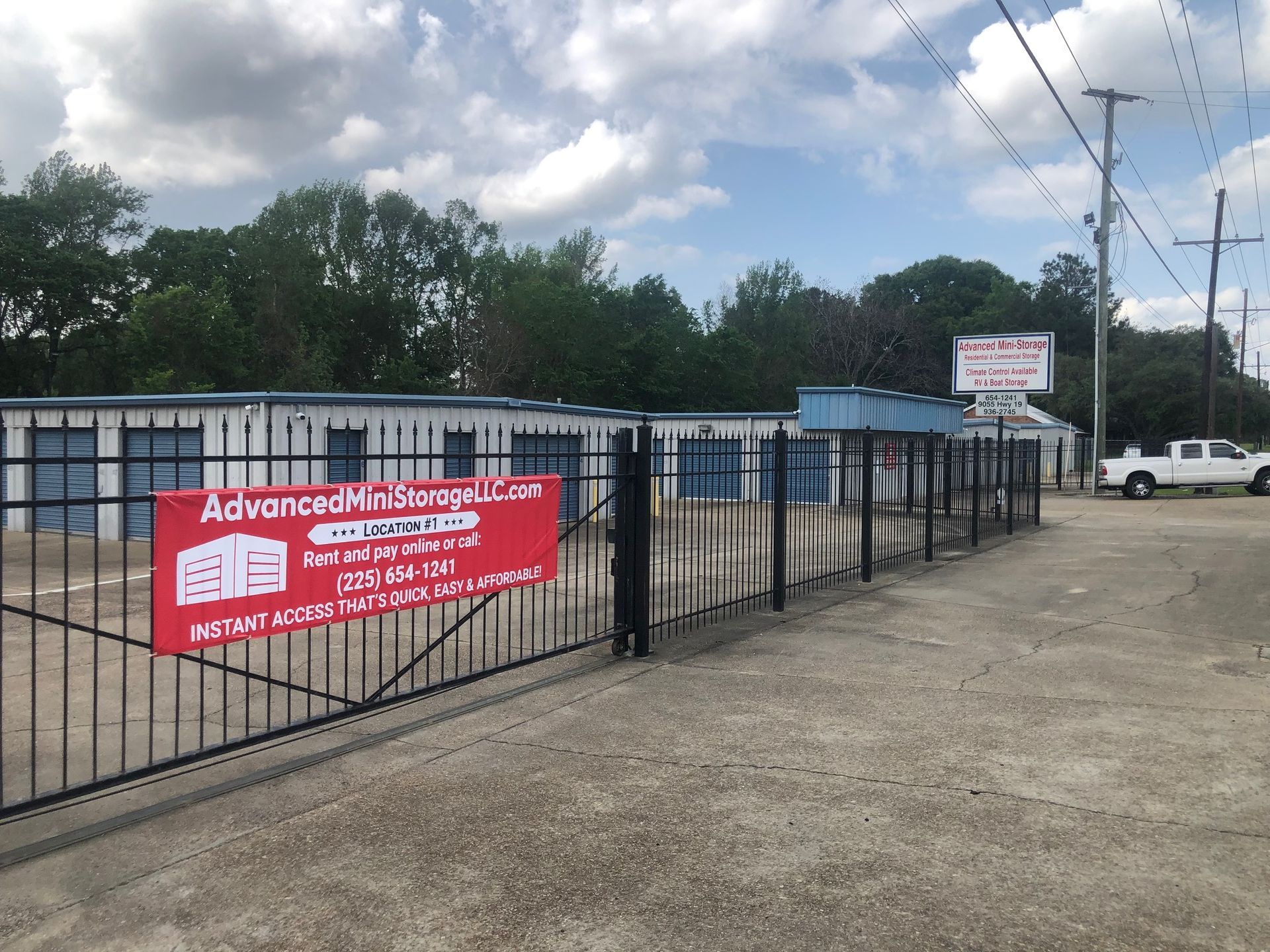Advanced Mini Storage Blog
How to Store Valuable Items: Security, Protection, and Climate Control Tips
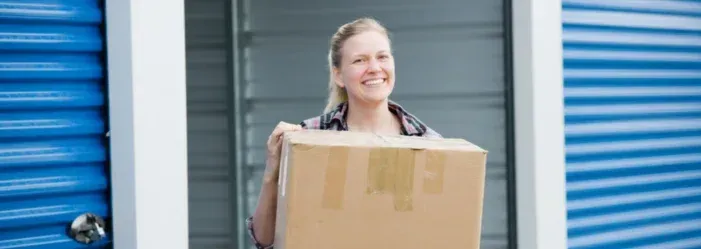
Storing valuable items correctly is crucial to ensuring their longevity and preserving their value. Whether you’re safeguarding family heirlooms, collectibles, or important documents, proper storage techniques can make a significant difference. Improper storage, on the other hand, can expose your possessions to damage from environmental factors, theft, or deterioration. It's important to recognize the risks of neglecting correct storage practices, as they could lead to irreversible loss or damage over time.
Understanding the Value of Your Items
Valuable items come in many forms, each with its own type of value. Some may have sentimental worth, carrying emotional significance that cannot be replaced, while others hold monetary value due to their rarity, age, or condition. Understanding what makes an item valuable is the first step in determining how it should be stored. Factors like fragility, rarity, and even historical significance can influence the storage needs of an item.
Choosing the Right Storage Option
When it comes to storing valuable items, there are two primary storage options: home storage and professional storage facilities. At home, you can secure items in safes, climate-controlled rooms, or cabinets, but this option often comes with limitations regarding security and climate control. On the other hand, professional storage facilities offer specialized services like advanced security measures, controlled environments, and expert handling, making them ideal for high-value items. Choosing the right option depends on your specific needs, the type of item, and your budget.
Home Storage Tips
Storing valuable items at home requires careful consideration to ensure their security and protection.
- Using Safes: A high-quality safe is one of the best options for protecting valuable items like jewelry, important documents, or small collectibles. Look for a fireproof and waterproof safe with an advanced locking system to offer extra protection against natural disasters or theft. Safes come in various sizes, so choose one that fits your needs while providing enough room for future storage.
- Hidden Compartments: If you’re concerned about burglars finding your safe or valuables, consider using hidden compartments. These can be integrated into furniture, floors, or walls, providing an extra layer of security. Items stored in such compartments are less likely to be discovered, as they blend in with their surroundings.
Professional Storage Facilities
For more valuable or large items, professional storage facilities offer specialized options to meet your storage needs.
- Types of Storage Units: Professional storage facilities offer different types of units, including climate-controlled spaces, lockers, and large storage rooms. Climate-controlled units are ideal for delicate items such as artwork, antiques, or documents that could be damaged by temperature and humidity fluctuations. For less sensitive items, standard storage units may suffice.
- Factors to Consider When Selecting a Facility: When choosing a storage facility, consider factors like location, security, accessibility, and climate control. Make sure the facility has reliable surveillance systems and robust security measures, including gated access and on-site staff. Additionally, check for insurance options to protect your items while in storage.
Security Measures
Proper security is essential whether you are storing items at home or in a professional facility. Here are key security measures to consider:
- Lock Systems: Ensure that your storage unit or safe is equipped with a reliable locking system. Digital locks, combination locks, or biometric locks provide enhanced security compared to traditional key-based systems. For home storage, use multiple locks for added protection.
- Surveillance Systems: Surveillance systems are a must for both home and professional storage. Installing cameras around your property can help deter theft and give you peace of mind. If using a storage facility, ensure the facility has 24/7 surveillance and regular monitoring to ensure your valuables are safe from any potential threats.
Professional Storage Facilities
When storing valuable items, professional storage facilities provide an added layer of security and specialized services that home storage may not be able to offer.
- Types of Storage Units: Professional storage facilities offer a variety of unit types to suit different needs. Climate-controlled units are perfect for temperature-sensitive items like artwork, electronics, or documents. For larger items, such as furniture or vehicles, there are larger storage spaces available. Some facilities also provide lockers for smaller valuables like jewelry or collectibles. Choose a unit that best accommodates the size and nature of your valuables.
- Factors to Consider When Selecting a Facility: When choosing a storage facility, it's essential to consider factors such as location, accessibility, security, and the specific needs of your items. Look for a facility that is easily accessible, yet secure enough to deter theft. Ensure the facility offers round-the-clock security, robust fire protection, and climate control if necessary. Also, check if they provide 24/7 access to your items and review their customer service ratings and reputation for peace of mind.
Security Measures
Ensuring your valuables are protected from theft or damage is critical, and security measures play a key role in safeguarding your possessions.
- Lock Systems: Whether storing items at home or in a facility, choosing the right lock system is vital. Opt for high-quality, tamper-resistant locks to prevent unauthorized access. For home storage, consider using smart locks, biometric locks, or combination locks for added security. In professional facilities, ensure the storage unit has an advanced locking mechanism, and check if additional security features like individual unit alarms are available.
- Surveillance Systems: Surveillance systems act as a deterrent to potential thieves and provide you with added peace of mind. For home storage, consider installing security cameras around your property, especially near entry points or storage areas. When using a professional facility, ensure they have 24/7 surveillance in place with high-definition cameras, motion sensors, and regular monitoring to keep your valuables safe.
The Role of Insurance
While security systems are essential for protecting valuable items, insurance provides an additional layer of protection in case of unforeseen events.
- Insuring Your Valuables: Insuring your valuable items ensures that you are financially protected if anything happens to them while in storage. Whether you're storing items at home or using a professional facility, check with your insurance provider to understand what is covered. Depending on the value and type of items you're storing, you may need specialized insurance to ensure full coverage.
- Types of Insurance Coverage: There are various types of insurance coverage options to consider. Homeowners insurance may cover some items in storage, but it’s often limited. For more comprehensive protection, consider renters or specialty insurance that covers storage-related risks, including theft, fire, water damage, or natural disasters. Many professional storage facilities also offer their own insurance plans, which can be tailored to the specific items being stored. Be sure to compare different options to choose the best coverage for your needs.
Climate Control Considerations
Proper climate control is essential for maintaining the condition of sensitive items, as fluctuations in temperature and humidity can cause irreversible damage.
- Why Climate Control Matters: Climate-controlled storage helps maintain a consistent environment, protecting items from extreme temperatures, humidity, and mold. Items like artwork, electronics, documents, and even furniture can suffer from cracks, warping, or deterioration if stored in non-climate-controlled environments. A controlled environment keeps your possessions in optimal condition, reducing the risk of degradation over time.
- Items That Require Climate-Controlled Storage: Many valuable items require a climate-controlled environment, especially those sensitive to temperature and moisture changes. These include artworks, antiques, electronics, musical instruments, vintage books, photographs, and delicate fabrics. Items like leather furniture or certain metals also benefit from stable humidity and temperature levels to avoid cracking, rusting, or fading.
Protecting Jewelry and Precious Metals
Jewelry and precious metals require special care to ensure they retain their beauty and value over time.
- Anti-Tarnish Methods: To protect silver, gold, and other precious metals from tarnishing, use anti-tarnish cloths or pouches designed specifically for this purpose. Store jewelry in individual pouches or containers to prevent scratching and exposure to moisture or air. For added protection, consider placing anti-tarnish strips or silica gel packets inside storage containers to absorb moisture.
- Proper Organization: Jewelry should be organized and stored in a way that prevents tangling or damage. Use jewelry boxes with separate compartments, padded trays, or even specialized storage units that allow each piece to remain distinct and secure. Avoid storing jewelry in direct sunlight or humid areas, as exposure to these elements can cause deterioration over time.
Preserving Important Documents
Important documents, such as legal papers, certificates, and family records, must be stored with care to ensure their longevity and protection.
- Acid-Free Folders: To preserve the integrity of paper documents, always store them in acid-free folders or boxes. Acid-free materials help prevent yellowing, brittleness, or degradation that can occur over time due to exposure to acidic substances. Archival-quality storage materials are designed to keep documents in pristine condition.
- Fireproof and Waterproof Storage: For the highest level of protection, consider storing important documents in fireproof and waterproof containers. Fireproof safes or document bags can protect your papers from damage caused by heat or water, especially in the event of a natural disaster or house fire. These containers are designed to maintain a safe temperature for your documents and protect them from water damage in case of floods or leaks.
Storing Electronics
Electronics are sensitive to environmental factors, and proper storage is key to ensuring they function properly over time.
- Avoiding Moisture and Dust: Moisture and dust can cause internal damage to electronics, leading to malfunction or degradation. When storing electronics, ensure they are kept in a dry, dust-free environment. Use silica gel packets or desiccants to absorb excess moisture. Avoid storing electronics in basements or attics where humidity levels tend to fluctuate, and always ensure the storage area is well-ventilated.
- Proper Packaging: To protect electronics from physical damage, use the original packaging if possible, as it is designed to safeguard the items. If the original packaging is not available, use padded boxes, anti-static wraps, and bubble wrap to cushion the devices. Make sure cables and accessories are neatly packed and labeled to avoid tangling or loss.
Artwork and Antiques Storage
Proper storage of artwork and antiques is essential to preserve their value and condition, as these items are often highly sensitive to environmental changes.
- Temperature and Humidity Control: Artwork and antiques, especially those made of wood, paper, or fabric, are particularly sensitive to temperature and humidity. Store these items in a climate-controlled environment to maintain stable conditions. Ideal temperature ranges for most antiques and artwork are between 60-70°F (15-21°C), with humidity levels around 40-50%. Fluctuations in temperature and humidity can cause wood to warp, paper to yellow, or paintings to crack.
- Special Storage Solutions: Use specialized storage solutions such as custom-built storage boxes, frames with UV-protective glass, or padded storage containers to protect artwork. Antiques, particularly those made of delicate materials like porcelain or glass, should be stored in secure, padded containers or display cabinets to prevent breakage. Consider using archival-quality materials for wrapping and padding to avoid damage from acidic materials or mold.
Vehicle Storage
Properly storing vehicles, whether for long-term or seasonal storage, requires careful preparation to prevent deterioration and damage.
- Long-Term Storage Tips: For long-term vehicle storage, clean the vehicle thoroughly to remove dirt, debris, and any corrosive substances like road salt. Fill the gas tank to prevent moisture from accumulating in the fuel system and add a fuel stabilizer to keep the fuel fresh. Disconnect the battery to prevent it from draining, and consider placing the vehicle on jack stands to take the weight off the tires, preventing flat spots.
- Preventing Rust and Damage: To protect against rust, store the vehicle in a dry, cool environment, preferably in a garage or storage unit. Cover the vehicle with a breathable car cover to protect it from dust, dirt, and humidity. Ensure that the storage area is well-ventilated and that the vehicle is not exposed to direct sunlight or extreme temperature fluctuations, as this can cause damage to the paint, seals, and tires. For vehicles stored outside, invest in a high-quality, weatherproof cover to shield it from the elements.
Maintenance of Stored Items
Proper maintenance is key to ensuring that stored items remain in good condition and retain their value over time.
- Periodic Inspections: Regularly inspect your stored items to catch any potential issues before they become major problems. Check for signs of moisture, mold, dust accumulation, or any physical damage. For items like electronics, jewelry, and artwork, periodic inspection helps identify potential wear and tear, allowing you to take corrective action early. If you store items in a facility, ask about their inspection and maintenance routines to ensure your possessions are consistently monitored.
- Cleaning and Care Routines: Keep your stored items clean to prevent damage. Dust off valuable items like antiques, jewelry, and electronics with appropriate cleaning tools. For items like furniture or textiles, use gentle cleaners and keep them away from direct sunlight to avoid fading or deterioration. For clothing and fabric items, ensure they are stored in breathable bags or boxes to prevent musty odors or fabric damage.
Conclusion
In conclusion, storing valuable items correctly is vital for preserving their value, condition, and longevity. Whether you're storing electronics, artwork, or important documents, using the right storage solutions, climate control, and security measures can make a significant difference. By implementing the tips outlined in this article—such as using appropriate storage units, maintaining regular inspections, and insuring your items—you can ensure that your possessions stay safe and well-preserved for years to come.
Remember to take the time to assess your storage needs and choose the best options for your valuables. With a little planning and care, you can protect your most prized possessions and ensure they remain in excellent condition.
FAQs
How often should I inspect my stored valuables?
It’s a good idea to inspect your stored items at least once every few months to check for signs of damage, moisture, or mold. The frequency may increase if the items are particularly sensitive to environmental changes.
Can I store my artwork in a regular storage unit?
While you can store artwork in a regular storage unit, it is highly recommended to use climate-controlled units to prevent damage from temperature fluctuations and humidity. Specialized art storage is ideal for preserving the quality of paintings and sculptures.
What are the best ways to prevent rust on metal items in storage?
To prevent rust, store metal items in dry, cool environments. Using silica gel packets or moisture-absorbing materials in storage containers can help absorb excess moisture. For long-term storage, consider applying a protective coating like wax or oil to metal surfaces.
Is it safe to store electronics in cardboard boxes?
Cardboard boxes can be used for short-term storage but aren't the best option for long-term storage, especially for electronics. Use anti-static bags or padded cases, and ensure the storage area is dry and free from dust.
Do I need insurance for items stored in a professional facility?
It is highly recommended to get insurance for your valuables when storing them in a professional facility. Many facilities offer insurance, but you may want to check with your own provider to ensure that the coverage is sufficient for your needs.



Store Your Belongings With Confidence
All Rights Reserved | Advanced Mini Storage

